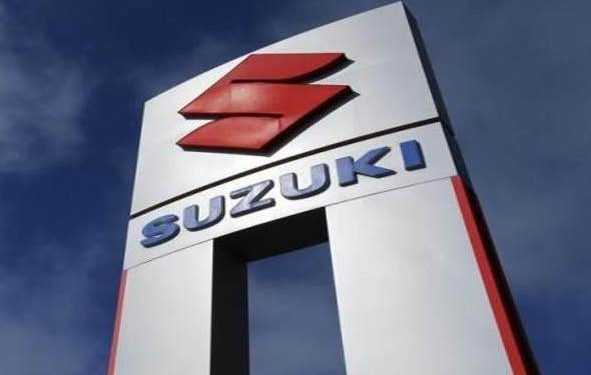New Delhi: The country’s largest carmaker Maruti Suzuki will launch multiple electric vehicles models in India in its bid to catch up with competitors and become a leader in the segment, despite not being present there at present, according to the company’s new Managing Director and CEO Hisashi Takeuchi.
The company, which plans to launch its first EV model in 2025, also plans to produce EVs from its factories in future when the demand for EVs picks up in the country. To start with, the first EV will be rolled out from Suzuki Motor Gujarat’s plant.
“We are a little behind our competitors in introducing the (EV) model to the Indian market, but we see that still, the market demand for those EVs is limited. Actually, sales of EVs in the Indian market are still very, very limited,” Takeuchi said here in an interaction.
He further said, “But that does not mean we are doing nothing about EV. We have done a very extensive test of our EV utilising our existing models and putting those batteries and motors and everything into this existing model. We have been doing this test for more than a year with multiple cars in the Indian environment so that we are sure that our EV technology will be good in the environment, which is very, very tough in India.”
Takeuchi was responding to a query on whether Maruti Suzuki India has given away the first-mover advantage in the EV segment to competitors like Tata Motors.
As per FADA, Tata Motors led the electric passenger vehicle segment in 2021-22 with retails of 15,198 units and a market share of 85.37 per cent in the vertical. Total electric passenger vehicle retail sales last fiscal stood at 17,802, up over three-fold, from 4,984 units in FY21, the latest data from the industry body revealed.
The government is pushing for EV sales penetration to rise to 30 per cent for private cars by 2030. Citing industry experts that EVs could account for 10 per cent by 2030, he said when the volume expands “of course, we would like to be a leader in the Indian automotive space, which is not just limited to IC (internal combustion) engines but all passenger cars. Also in the EV space, we would like to become the number one and the leader in the Indian automotive space.”
For this, Takeuchi said, “We have been doing tests and developing models prepared for India specification. That it’s not just one. We said by 2025 we will introduce (an EV) but there are plans (for others) to follow. I’m sure that we can be very strong in the EV space also when we introduce our products into this EV market.”
He confirmed that multiple EV models would follow in due course once the company launches its first EV in 2025.
Takeuchi, however, said EV is still very expensive and with the current technology it is quite difficult to make a very affordable EV.
Asked if that meant the company’s first EV will not be under Rs 10 lakh, he said, “I can’t give you a specific answer right now but what I can tell is that it’s really difficult to have a cost-competitive and less expensive EV because of the cost of a battery.”
An EV can become cost competitive if the battery is smaller but that would reduce the range and in turn will create range anxiety for consumers, he said, adding that such an EV could be successfully sold only if there is adequate charging infrastructure with quick charging options.
Maruti Suzuki had earlier in 2019, tested an electric vehicle based on its WagonR with plans to launch in 2020 but decided against a commercial launch for personal usage citing lack of infrastructure and government support and has maintained that at the current prices it would be difficult to sell affordable EVs at mass scale.
Last month parent Suzuki Motor Corporation had announced that it would invest around 150 billion yen (about Rs 10,445 crore) by 2026, for local manufacturing of Battery Electric Vehicles (BEV) and BEV batteries in Gujarat.
“The investment this time is at Suzuki Motor Gujarat plant but that does not mean that we will not produce EVs in Maruti Suzuki’s plants…we have to produce in every factory over Maruti Suzuki as well as Suzuki Motor Gujarat (SMG) once EV becomes popular in India,” Takeuchi said.
The decision to start EV production from the SMG plant has been taken “because this new EV is a strategically important model for the entire Suzuki group globally. We are planning to not only sell this car in the Indian market but also export as well.”
Commenting on semiconductor shortage, he said the situation has improved a bit but it is difficult to give an outlook.
In terms of sales, he said the company still has pending orders of over 2.7 lakh vehicles. Although the company’s market share has dropped to 43.4 per cent in FY22 as compared to 47 per cent in FY21, the company expects it to improve with the planned launch of new SUVs and improvement in the supply chain.
MSI’s dispatches to dealers last fiscal stood at 13,31,558 units, as compared with 12,93,840 units in the 2020-21 financial year.
PTI






































